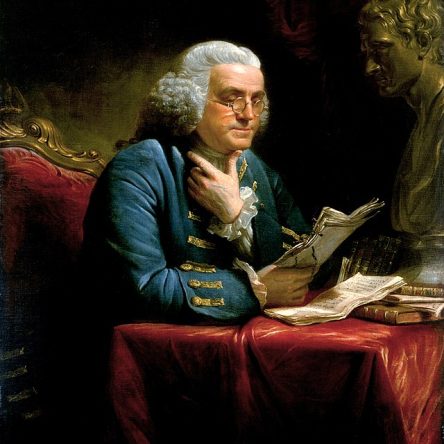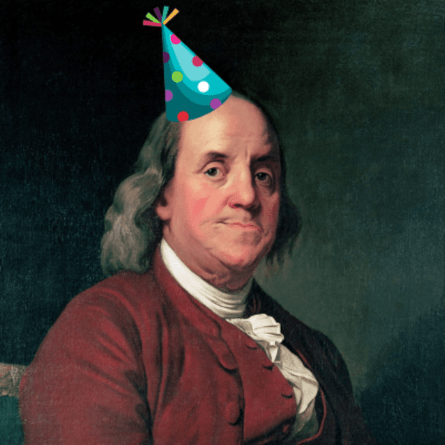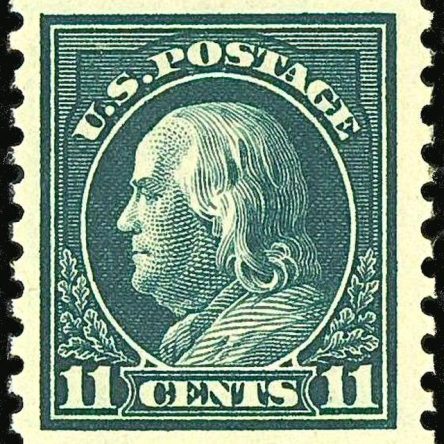Today in history, Founding Father Ben Franklin was born!
Those of us preparing ourselves or others for the US Naturalization Interview usually memorize some, if not all, of the 100 questions early into our studying. At times, it’s questions we find the easiest, or if you’re like me, just ones you really like, and I like Mr. Hunnid Dollar Bill, Ben Franklin. No, he wasn’t a president, he was just a well-rounded guy, and that’s why he’s on our highest denomination circulating bill.
The US Naturalization Interview consists of an overview of the interviewee's N-400 application, 10 Civics and History questions, and a written and oral exam. The last two are used to demonstrate the individual's knowledge of the English language, for which depending on one’s age you may be exempt from taking. For the Civics and History portion, there are 100 possible questions. 10 questions are randomly selected on the day of your exam, and you only need to answer 6 of the 10 correctly.
Question number 68 asks, “What is one thing Benjamin Franklin is famous for?” The answers are seemingly endless because he did just about everything. Here are a few of my favorite or most surprising facts I learned about Franklin, all of which are acceptable answers during your Naturalization exam... (answers in bold).
Ben Franklin, the innovator
Cleanliness wasn’t a trait of the newly founded America. Trash was typically strewn through the streets with no organized means of cleaning. In 1750, the story has it, Franklin observed a poor woman sweeping people’s sidewalks in the hope of pay. While her quick progress surprised him, he concluded that an organized group could finish more efficiently. He then gathered the supplies needed at several watchmen stations, where individuals looking for work could gather the cleaning supplies and proceed to keep the city clean. Thus, he organized the first street-sweeping program in the nation.
Throughout his career he was also heavily involved with the postal service, being assigned various duties and titles, the highest being Postmaster General. As the FIRST Postmaster General, Franklin was responsible for managing and directing the day-to-day operations of the USPS.
In 1784 Franklin introduced the concept which later came to be known as Daylight Savings Time in his essay, An Economical Project for Diminishing the Cost of Light. While residing in Paris, Franklin suggested there were economic benefits to waking up earlier. Instead of relying on candlelight in the evenings, one needed only wake earlier and reap the benefits of natural sunlight. Slightly judgmental of Parisians being late risers, Franklin went on to propose regulations to ensure they’d rise with the sun. Please note, Daylight Savings Time wasn’t actually proposed or adopted until the 20th century, so my boyfriend has no reason to be mad at Ben Franklin when we’re forced to wake up at the crack of dawn.
Ben Franklin, the inventor
In 1717, at the age of 11, Ben invented the first swimming fins. These were two pieces of wood worn as gloves which provided an extra thrust while swimming.
In 1750, to protect people and buildings from lightning strikes, he created the lightning rod. This is a device which attracts lightning towards it and away from potential danger.
In 1752, to ease his brother's pain from kidney stones, Ben created the flexible urinary catheter, an improvement on previous catheters which were rigid and uncomfortable.
Lastly, in 1786 he created the long arm to reach high books, which might come in handy when my coworkers shelve those difficult to reach novels.
Ben Franklin, Founding Father, of other things
In 1736 he founded the first volunteer fire department known as the Union Fire Company in Philidelphia.
Eager to educate future generations of Americans, he founded the first liberal arts academy in 1749. Known as Pennsylvania Academy & College, it was later renamed to the University of Pennsylvania. Yes, that University of Pennsylvania, Ben Frankin founded one of the Ivies.
In 1751, he founded the nation’s first public hospital, the Pennsylvania Hospital.
 Lastly, and most importantly (I’m being biased), Franklin founded the first free circulating library, the Library Company of Philadelphia. I obviously wouldn’t be sitting here writing to you all, on the clock, had he not done so. Franklin wanted future generations to have access to knowledge, and what better place for free knowledge than the public library? Where we not only offer books in physical and digital format, but access to career growth, help with personal finances, English language learning, digital literacy classes, and of course, free citizenship classes. For dates and times for our free classes click here.
Lastly, and most importantly (I’m being biased), Franklin founded the first free circulating library, the Library Company of Philadelphia. I obviously wouldn’t be sitting here writing to you all, on the clock, had he not done so. Franklin wanted future generations to have access to knowledge, and what better place for free knowledge than the public library? Where we not only offer books in physical and digital format, but access to career growth, help with personal finances, English language learning, digital literacy classes, and of course, free citizenship classes. For dates and times for our free classes click here.
Ben Franklin, the rockstar.
The final Franklin fact I’d like to share may not be one to include during your USCIS Naturalization Interview but, it’s possibly my favorite. In 1719, following the capture of Blackbeard the Pirate, Franklin composed a ballad in commemoration of the event. Blackbeard’s capture marked the end of Piracy across the Atlantic Ocean. So, add musician, composer, and (dare I say?) rockstar to the list of things you didn’t know about my favorite founding father, Benjamin Franklin.
Here are just some of HCPL's naturalization interview materials to help you prepare for the questions not related to Ben Franklin
BECOMING A U.S. CITIZEN: A GUIDE TO THE LAW, EXAM & INTERVIEW






Add a comment to: Happy Birthday, Ben Franklin – Citizenship Question #68